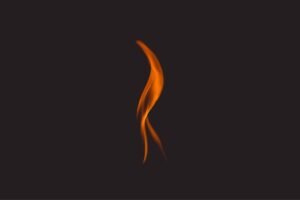Outdoor Fire Hazards – How to Stay Safe
 Keeping yourself safe from fire hazards is becoming increasingly important, given how common they are around us. While you can impose rules approved by home restoration experts in the house, the outdoors are different.
Keeping yourself safe from fire hazards is becoming increasingly important, given how common they are around us. While you can impose rules approved by home restoration experts in the house, the outdoors are different.
Outdoor fires were responsible for 16,600 injuries and 3,704 deaths in 2019 alone and led to $14.8 billion of losses. While the number is better than the 2018 figure of $26.1 billion, it is still substantial. You need to know how to stay safe to avoid injuries.
What is a Fire Hazard?
Before we start the guide on staying safe from fire hazards, let’s first understand fire hazards and the items classified as such.
Fire hazard is a broad category including a diverse range of items or activities that can cause unsafe fire behaviors. They are dangerous because they can result in uncontrolled flames that can spread and affect a significant number of people and areas.
What are Common Outdoor Fire Hazards you Need to Avoid
The reason outdoor fire hazards are dangerous is because of the sheer scale of destruction they can cause. Unlike indoor fire hazards, one cannot contain outdoor fires, and home restoration services cannot repair the damage. Below are some examples of common outdoor fire hazards:
- Lit cigarettes
- Spray paints
- Flammable liquids
- Trash containers
- Open flame ignitions near construction areas
- Portable torches
- Vacant buildings
These are only a few examples of potential fire hazards outdoors that you need to stay clear of to ensure your safety.
In addition to the fire hazards mentioned above, there are also less obvious outdoor aspects that may not meet fire safety criteria. Static electricity produced due to metal friction and in lifts can also result in fires if the surrounding areas are dry and flammable.
Some Tips to Keep in Mind to Stay Safe Outdoors
While you cannot hide away at home to avoid all forms of outdoor fire hazards, you can take steps to keep yourself protected against any major incidents.
1. Avoid Smoking in Grassy Areas
Avoid smoking to not only stay healthy but also prevent fires. Smoking in grassy areas means taking an additional risk on top of a health risk. You should also avoid standing near anyone smoking in a grassy area. The problem is that people don’t always stub their cigarettes properly before throwing them away.
The leftover sparks can use dry leaves and twigs to grow into a fire that needs firefighters to get it under control.
2. Stay Clear of Oil Tankers
While oil tankers are designed to prevent them from catching fire, accidents can happen. While on the road, give an oil tanker ample space to pass through and avoid driving rashly around one. Remember that the tanker is a much bigger vehicle and cannot maneuver as quickly as your much smaller car or motorbike can.
Irresponsible actions around them can result in avoidable disasters.
3. Don’t Explore Vacant Buildings
Vacant buildings are common fire hazards because of their state of disrepair. Since they have not received maintenance in ages, some of the building material has likely deteriorated, and the wires are prone to short-circuiting.
Any thoughtless action or chance occurrence can cause a spark to set the place on fire, trapping people inside and endangering neighboring buildings or areas.
4. Keep a Safe Distance from Construction Areas
Construction areas are some of the most dangerous sources of fire hazards, which is why all employees are required to wear protective gear at all points. The frictions from drilling, hot metal, demolitions are great examples of activities that can quickly cause massive fires to erupt.
The safest decision for you is to keep as much distance as possible when walking or driving near a construction area. You never know when something inflammable might fly out of the site and cause injuries.
5. Avoid Bringing a Combustible Fuel Near a Heat Source
This safety measure is difficult since most regular items are combustible fuels, but taking some degree of precaution will help you prevent dangerous situations.
Some of the most common combustible fuels are wood, dry leaves, spray paints, deodorants, other flammable liquids, etc. If you will be around a heat source for any reason, wear appropriate clothing and avoid taking any items that might catch fire.
Wrapping Up
Overall, outdoor fire hazards are dangerous for you, and you should follow the advice of home restoration experts, like 911 Restoration, to keep yourself safe from harm.
Furthermore, if you need home restoration services in Brevard County, contact the 911 Restoration team immediately. We offer water damage restoration, sanitization and disinfection solutions, mold removal, and sewage cleanup services, among others.
Our goal is to keep our communities safe and happy.


